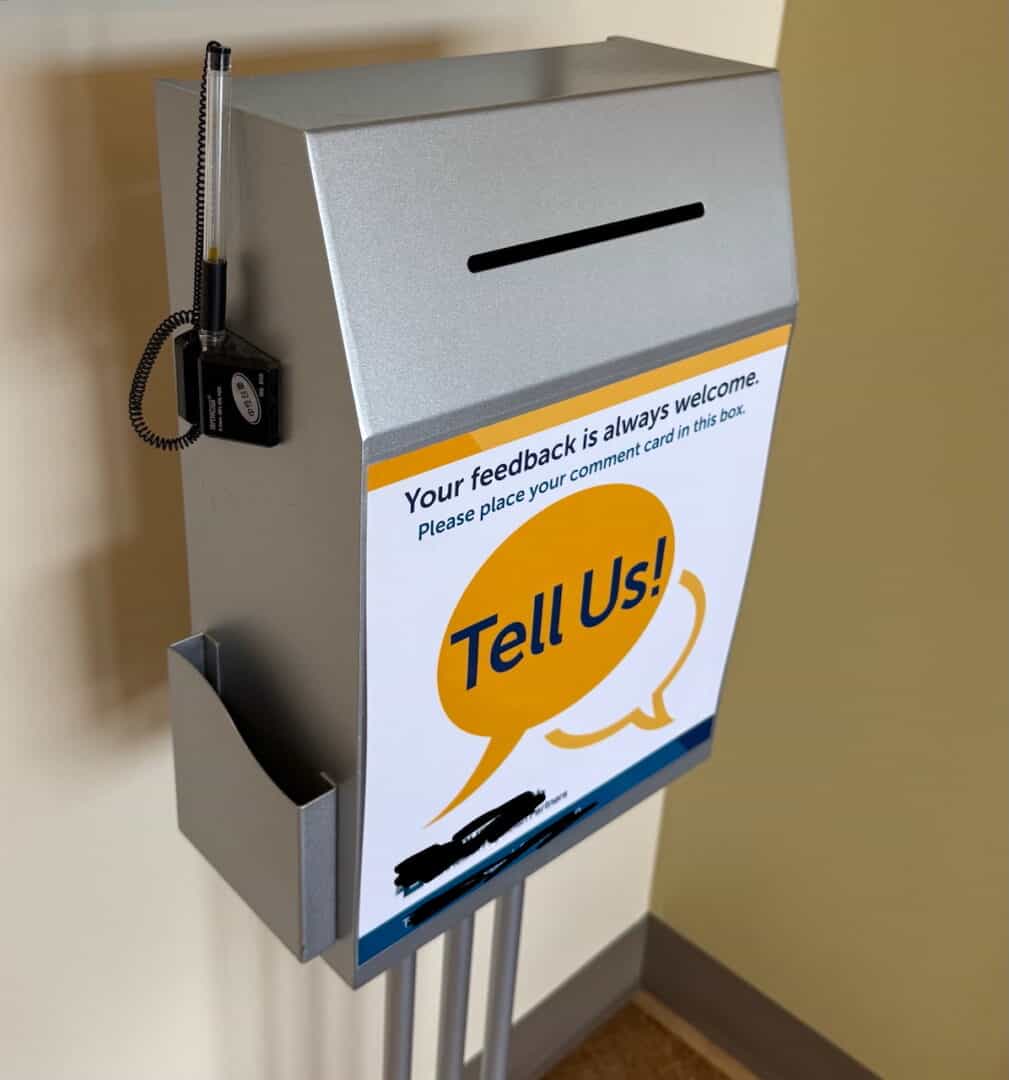I recently had an annual wellness exam through a hospital system's primary care group. Everything went well and I had a good experience. Even though I can't help thinking about opportunities for improvement, I wasn't itching to provide any feedback.
On the way out, I noticed a sign on a large metal box that invited feedback.
The cheerful sign says “Tell Us!” and that “Your feedback is always welcome”:

OK, place your comment card in this box. I see the slot.
What I don't see is… comment cards. The holders for those cards were empty on both sides of the comment box.
If I had been looking to give feedback, I would have been very frustrated.
Even though the sign SAYS that feedback is welcome, the organization is sending a stronger message that they don't really care. Or that they don't care enough to ensure that comment cards are always available.
Or, they have converted to asking for feedback electronically. And, if that's the case, maybe this box should just be removed.
At least they've provided a pen…
This reminds me of far too many employee suggestion boxes that I've seen in my travels.
As a hospital employee once said to me, pointing at the employee suggestion box:
“That box is where good ideas go to die!”
Even if cards are available, people stop using a suggestion box system when the “futility factor” is high. If we take the effort to fill out a card, and nothing happens, why would we do that again?
If we say we welcome feedback, we need to make it easy for people to share it–and just as importantly, we need to show that we're listening and responding. An empty comment card holder might seem like a small oversight, but it sends a big message.
Whether it's patients or employees, people quickly learn whether their input truly matters. And when they sense that it doesn't, they stop trying. That's how the “futility factor” creeps in–and once it does, it's hard to reverse.
If your organization still has suggestion boxes (literal or metaphorical), take a moment to ask: Are we making it easy to speak up? Are we responding in a timely, meaningful way? Or are we unintentionally signaling that feedback goes nowhere?
Because a dusty box with no cards isn't just bad optics. It's a missed opportunity to learn, improve, and build trust.
Other posts on suggestion boxes
Please scroll down (or click) to post a comment. Connect with me on LinkedIn.
Let’s build a culture of continuous improvement and psychological safety—together. If you're a leader aiming for lasting change (not just more projects), I help organizations:
- Engage people at all levels in sustainable improvement
- Shift from fear of mistakes to learning from them
- Apply Lean thinking in practical, people-centered ways
Interested in coaching or a keynote talk? Let’s talk.
Join me for a Lean Healthcare Accelerator Trip to Japan! Learn More









